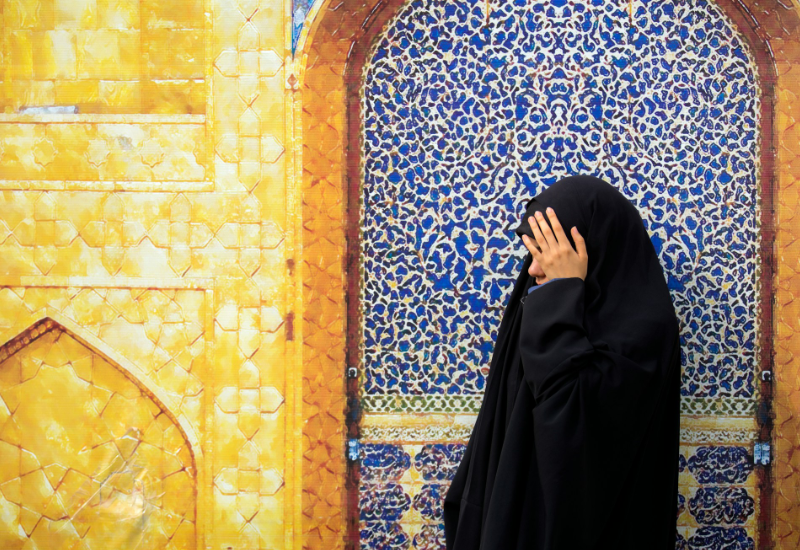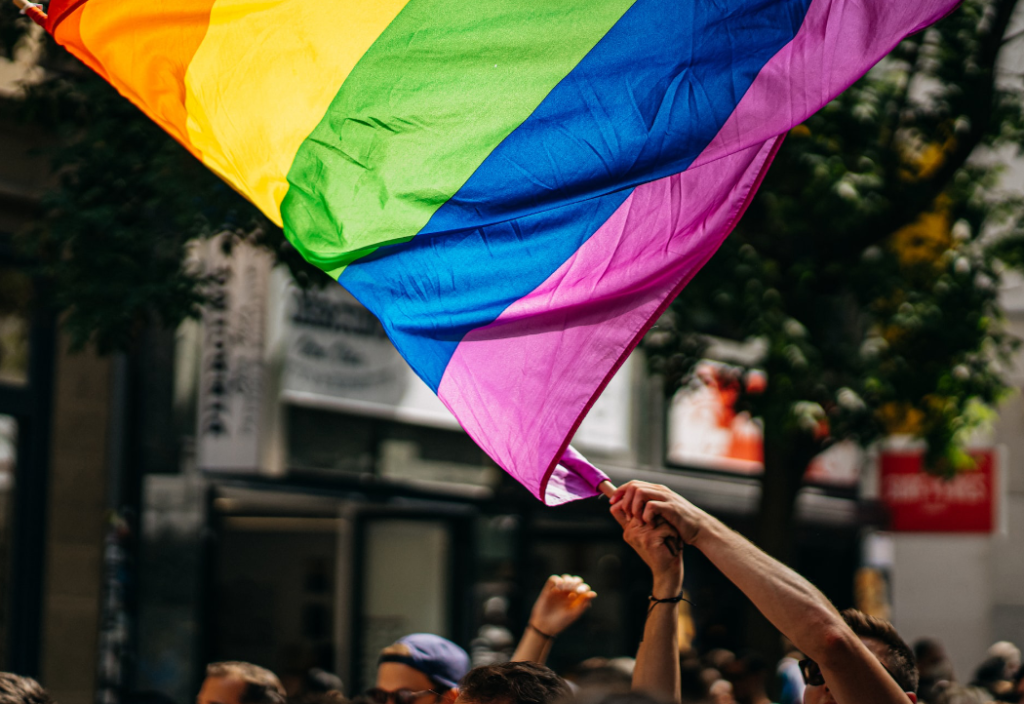The latest in a series of intra-left conflicts turns on the decision to bar male athletes from competition in the female category in both swimming and rugby league – regardless of their gender identity or gender expression.
This issue has been in the Australian public consciousness since the recent election, due to the public vilification of Liberal candidate Katherine Deves, who had previously run the organisation Save Women’s Sport, campaigning for the right to single-sex sport for women. Sport is just one part of a much bigger picture arising out of clashing approaches to sex and gender.
Australia protects disadvantaged groups in a way that is ‘symmetrical’ – meaning, covers everyone. Our anti-discrimination and equal opportunity law protect ‘race’, not ‘indigenous people’; ‘sex’, not ‘female people’. It also protects ‘gender identity’, and symmetry means this is a protection for everyone, trans and otherwise. ‘Cis’ is the word some use for otherwise.
In itself, the concept ‘cis’ may be innocuous. But in combination with some of the orthodoxies of the left today, it has been used to suppress knowledge of conflicts of interest with other minority groups, and to position existing rights struggles as resolved, when they are far from being that.
One of these orthodoxies is that those who are ‘privileged’ must defer to those who are disadvantaged. When it comes to gender identity, ‘cis’ names the privileged, ‘trans’ the disadvantaged.
Still. There is a world of difference between being privileged in one respect, and being privileged full stop. A ‘cis’ person might well be disadvantaged relative to other protected attributes. For example, the person might suffer racial discrimination, age discrimination, and sex discrimination (might be indigenous, elderly, and female). A trans person might be advantaged relative to other protected attributes. For example, the person might suffer no racial, age, or sex discrimination (might be white, young, and male).
Sport is just one part of a much bigger picture arising out of clashing approaches to sex and gender.
Leftist politics today obscures these nuances. Consider an ‘evenly matched pair’ when it comes to privilege/disadvantage. A black man and a white woman begin a political discussion: he wants to talk about racism; she wants to talk about sexism. Should we simply declare one ‘privileged’ and the other ‘disadvantaged’, and tell the one to be quiet and listen? Which one? And what when some disadvantaged groups are taken more seriously than others?
With these distinctions in hand, we’re in a better position to understand one of the fiercest debates happening on the left today, one which started inside feminism but has since spilled out into the mainstream. That is the debate between allegedly ‘trans-inclusive’ and allegedly ‘trans-exclusive’ feminists. I say ‘allegedly’ because neither excludes trans people per se. Let’s instead relabel these groups ‘team gender-identity’ and ‘team gender-critical’, so as to not prejudge the issue.
Team gender-identity think that gender identity is very important, and a lot more important than sex, if there is even such a thing as sex. For that reason, they think that anything previously determined on the basis of sex should now be determined on the basis of gender identity. Women’s sport, then, is for a mixed-sex group of people who identify as women. Ditto women-only services, like rape and domestic violence recovery groups, and women-only provisions, like scholarships.
Among these ‘women’, some are privileged relative to a further trait, gender identity, while others are disadvantaged. Because the privileged ought to defer to the disadvantaged, we arrive at a position in which ‘cis’ women contesting the inclusion of ‘trans’ women – whether in a single domain like sport, or multiple domains – is seen as a morally bad, like wealthy women excluding women with disabilities.
Team gender-critical think that sex is very important, and a lot more important than gender identity, if there is even such a thing as gender identity (they don’t think they have gender identities). They think they are just female (sex), and have been treated differently on that basis.
There is no issue of privilege and disadvantage between ‘cis’ and trans women here, because trans women are not female. There is instead a question of privilege between females when it comes to gender identity, because trans men and female nonbinary people have a gender identity, and ‘cis’ women don’t.
The point: neither group of feminists is excluding trans people. Each is including different groups of trans people because each group has different basic commitments when it comes to sex and gender.
The fight for equal rights for female people has not yet been won. Calling them ‘privileged’ suggests that it has, and that the focus should now shift to more specific intersections between multiple minority groups. Calling them ‘cis’ obscures the fact that these apparently privileged women have an attribute that the apparently disadvantaged group lack, namely femaleness.
The trans woman and the ‘cis’ woman are also an ‘evenly matched pair’: one disadvantaged in virtue of sex, the other in virtue of gender identity. Both types of disadvantage are important, and we need to work against both, not erase one in order to work against the other.
If you wish to republish this original article, please attribute to Rationale. Click here to find out more about republishing under Creative Commons.
Photo by Joel Muniz on Unsplash.







Does this mean that being white and of the male sex is the prime position of ‘advantage’ and ‘privilege’? All other identities are underprivileged, but within these positions some people may be at a disadvantage comparatively within a particular identification context.
hi anthony. i don’t think it is. i think there are many axes of advantage/disadvantage and leftist identity politics overlooks many that are relevant (like we hardly ever talk about class, even though it is on a par with race and sex; and we never talk about things like who has suffered child sexual abuse, or who has suffered a serious illness, and things like that). being white and male would be a position of advantage if you’re thinking about race and sex, but it wouldn’t follow from that that a white male person is ‘all things considered’ privileged. you’d have to know a lot more about him to know that. i actually think it’s entirely unhelpful to think about all things considered privilege anyway, because so few people have it. it’s more interesting to think about ways people are privileged (or disadvantaged). is your point, even if we focus just on e.g. race, there are still people who are more and less advantaged, and that’s not because of other features of identity?
This essay ignores the fact that there are numerous ways to distinguish ‘maleness’ and ‘femaleness’ and that certain groups promote only one or two of them, for all contexts/laws/decisions. For example, LGB social groups interested in sexual orientation and physical attraction have been known to exclude trans women.
As described in ‘Sex, gender, and identity: It’s complicated’ (Rationale, Feb 12, 2022), which criterion is most relevant and fair depends upon the context within which the distinction is being made, e.g. participating in women’s sports versus receiving assistance at a rape crisis service. Even within sport participation, the context of rugby league is likely to require different inclusion criteria from snooker, for example.
At least seven legitimate alternative ‘femaleness’ criteria are listed in this article. Gender identity is only one of them. And “sex” is not, as this term is much too undefined and simplistic.
Hence “It’s complicated”.
hi gary. there are not numerous ways to distinguish maleness and femaleness. in your article you conflate differences between the sexes (e.g. hormone levels) and things that are arguably social or mixed (e.g. manner), on the one hand, with being one sex or the other (gametes), on the other hand. it’s actually not complicated at all. lesbian and gay groups are interested in sex because they’re same-sex attracted, they exclude trans people of the opposite sex because they’re the opposite sex (regardless of their identities). it’s the conflation between sex and gender identity that makes any of this look like ‘exclusion’. and just as an aside, attempting to make an intervention into a controversial debate by accusing all parties of being ’emotional’, especially when the villainized party to the debate is feminists – long used to being dismissed by men as ’emotional’ rather than rational – doesn’t strike me as a tactic likely to be very successful. it certainly irritated me!